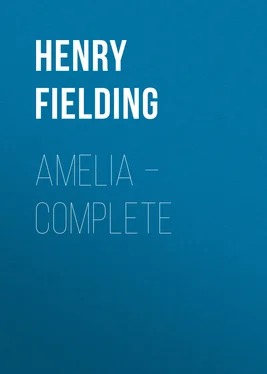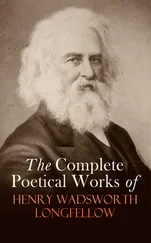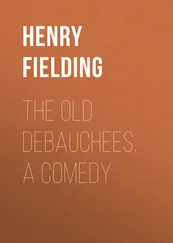Henry Fielding - Amelia – Complete
Здесь есть возможность читать онлайн «Henry Fielding - Amelia – Complete» — ознакомительный отрывок электронной книги совершенно бесплатно, а после прочтения отрывка купить полную версию. В некоторых случаях можно слушать аудио, скачать через торрент в формате fb2 и присутствует краткое содержание. Жанр: foreign_prose, foreign_antique, на английском языке. Описание произведения, (предисловие) а так же отзывы посетителей доступны на портале библиотеки ЛибКат.
- Название:Amelia – Complete
- Автор:
- Жанр:
- Год:неизвестен
- ISBN:нет данных
- Рейтинг книги:4 / 5. Голосов: 1
-
Избранное:Добавить в избранное
- Отзывы:
-
Ваша оценка:
- 80
- 1
- 2
- 3
- 4
- 5
Amelia – Complete: краткое содержание, описание и аннотация
Предлагаем к чтению аннотацию, описание, краткое содержание или предисловие (зависит от того, что написал сам автор книги «Amelia – Complete»). Если вы не нашли необходимую информацию о книге — напишите в комментариях, мы постараемся отыскать её.
Amelia – Complete — читать онлайн ознакомительный отрывок
Ниже представлен текст книги, разбитый по страницам. Система сохранения места последней прочитанной страницы, позволяет с удобством читать онлайн бесплатно книгу «Amelia – Complete», без необходимости каждый раз заново искать на чём Вы остановились. Поставьте закладку, и сможете в любой момент перейти на страницу, на которой закончили чтение.
Интервал:
Закладка:
She then flung herself into her chair, where she gave a loose to her passion, whilst he, in the most affectionate and tender manner, endeavoured to soothe and comfort her; but passion itself did probably more for its own relief than all his friendly consolations. Having vented this in a large flood of tears, she became pretty well composed; but Booth unhappily mentioning her father, she again relapsed into an agony, and cried out, “Why? why will you repeat the name of that dear man? I have disgraced him, Mr. Booth, I am unworthy the name of his daughter.” – Here passion again stopped her words, and discharged itself in tears.
After this second vent of sorrow or shame, or, if the reader pleases, of rage, she once more recovered from her agonies. To say the truth, these are, I believe, as critical discharges of nature as any of those which are so called by the physicians, and do more effectually relieve the mind than any remedies with which the whole materia medica of philosophy can supply it.
When Mrs. Vincent had recovered her faculties, she perceived Booth standing silent, with a mixture of concern and astonishment in his countenance; then addressing herself to him with an air of most bewitching softness, of which she was a perfect mistress, she said, “I do not wonder at your amazement, Captain Booth, nor indeed at the concern which you so plainly discover for me; for I well know the goodness of your nature: but, O, Mr. Booth! believe me, when you know what hath happened since our last meeting, your concern will be raised, however your astonishment may cease. O, sir! you are a stranger to the cause of my sorrows.”
“I hope I am, madam,” answered he; “for I cannot believe what I have heard in the prison – surely murder” – at which words she started from her chair, repeating, “Murder! oh! it is music in my ears! – You have heard then the cause of my commitment, my glory, my delight, my reparation! Yes, my old friend, this is the hand, this is the arm that drove the penknife to his heart. Unkind fortune, that not one drop of his blood reached my hand. – Indeed, sir, I would never have washed it from it. – But, though I have not the happiness to see it on my hand, I have the glorious satisfaction of remembering I saw it run in rivers on the floor; I saw it forsake his cheeks, I saw him fall a martyr to my revenge. And is the killing a villain to be called murder? perhaps the law calls it so. – Let it call it what it will, or punish me as it pleases. – Punish me! – no, no – that is not in the power of man – not of that monster man, Mr. Booth. I am undone, am revenged, and have now no more business for life; let them take it from me when they will.”
Our poor gentleman turned pale with horror at this speech, and the ejaculation of “Good heavens! what do I hear?” burst spontaneously from his lips; nor can we wonder at this, though he was the bravest of men; for her voice, her looks, her gestures, were properly adapted to the sentiments she exprest. Such indeed was her image, that neither could Shakspear describe, nor Hogarth paint, nor Clive act, a fury in higher perfection.
“What do you hear?” reiterated she. “You hear the resentment of the most injured of women. You have heard, you say, of the murder; but do you know the cause, Mr. Booth? Have you since your return to England visited that country where we formerly knew one another? tell me, do you know my wretched story? tell me that, my friend.”
Booth hesitated for an answer; indeed, he had heard some imperfect stories, not much to her advantage. She waited not till he had formed a speech; but cried, “Whatever you may have heard, you cannot be acquainted with all the strange accidents which have occasioned your seeing me in a place which at our last parting was so unlikely that I should ever have been found in; nor can you know the cause of all that I have uttered, and which, I am convinced, you never expected to have heard from my mouth. If these circumstances raise your curiosity, I will satisfy it.”
He answered, that curiosity was too mean a word to express his ardent desire of knowing her story. Upon which, with very little previous ceremony, she began to relate what is written in the following chapter.
But before we put an end to this it may be necessary to whisper a word or two to the critics, who have, perhaps, begun to express no less astonishment than Mr. Booth, that a lady in whom we had remarked a most extraordinary power of displaying softness should, the very next moment after the words were out of her mouth, express sentiments becoming the lips of a Dalila, Jezebel, Medea, Semiramis, Parysatis, Tanaquil, Livilla, Messalina, Agrippina, Brunichilde, Elfrida, Lady Macbeth, Joan of Naples, Christina of Sweden, Katharine Hays, Sarah Malcolm, Con Philips, 6 6 Though last not least.
or any other heroine of the tender sex, which history, sacred or profane, ancient or modern, false or true, hath recorded.
We desire such critics to remember that it is the same English climate, in which, on the lovely 10th of June, under a serene sky, the amorous Jacobite, kissing the odoriferous zephyr’s breath, gathers a nosegay of white roses to deck the whiter breast of Celia; and in which, on the 11th of June, the very next day, the boisterous Boreas, roused by the hollow thunder, rushes horrible through the air, and, driving the wet tempest before him, levels the hope of the husbandman with the earth, dreadful remembrance of the consequences of the Revolution.
Again, let it be remembered that this is the selfsame Celia, all tender, soft, and delicate, who with a voice, the sweetness of which the Syrens might envy, warbles the harmonious song in praise of the young adventurer; and again, the next day, or, perhaps the next hour, with fiery eyes, wrinkled brows, and foaming lips, roars forth treason and nonsense in a political argument with some fair one of a different principle.
Or, if the critic be a Whig, and consequently dislikes such kind of similes, as being too favourable to Jacobitism, let him be contented with the following story:
I happened in my youth to sit behind two ladies in a side-box at a play, where, in the balcony on the opposite side, was placed the inimitable B – y C – s, in company with a young fellow of no very formal, or indeed sober, appearance. One of the ladies, I remember, said to the other – “Did you ever see anything look so modest and so innocent as that girl over the way? what pity it is such a creature should be in the way of ruin, as I am afraid she is, by her being alone with that young fellow!” Now this lady was no bad physiognomist, for it was impossible to conceive a greater appearance of modesty, innocence, and simplicity, than what nature had displayed in the countenance of that girl; and yet, all appearances notwithstanding, I myself (remember, critic, it was in my youth) had a few mornings before seen that very identical picture of all those engaging qualities in bed with a rake at a bagnio, smoaking tobacco, drinking punch, talking obscenity, and swearing and cursing with all the impudence and impiety of the lowest and most abandoned trull of a soldier.
Chapter vii. – In which Miss Matthews begins her history
Miss Matthews, having barred the door on the inside as securely as it was before barred on the outside, proceeded as follows:
“You may imagine I am going to begin my history at the time when you left the country; but I cannot help reminding you of something which happened before. You will soon recollect the incident; but I believe you little know the consequence either at that time or since. Alas! I could keep a secret then! now I have no secrets; the world knows all; and it is not worth my while to conceal anything. Well! – You will not wonder, I believe. – I protest I can hardly tell it you, even now. – But I am convinced you have too good an opinion of yourself to be surprized at any conquest you may have made. – Few men want that good opinion – and perhaps very few had ever more reason for it. Indeed, Will, you was a charming fellow in those days; nay, you are not much altered for the worse now, at least in the opinion of some women; for your complexion and features are grown much more masculine than they were.” Here Booth made her a low bow, most probably with a compliment; and after a little hesitation she again proceeded. – “Do you remember a contest which happened at an assembly, betwixt myself and Miss Johnson, about standing uppermost? you was then my partner; and young Williams danced with the other lady. The particulars are not now worth mentioning, though I suppose you have long since forgot them. Let it suffice that you supported my claim, and Williams very sneakingly gave up that of his partner, who was, with much difficulty, afterwards prevailed to dance with him. You said – I am sure I repeat the words exactly – that you would not for the world affront any lady there; but that you thought you might, without any such danger declare, that there was no assembly in which that lady, meaning your humble servant, was not worthy of the uppermost place; ‘nor will I,’ said you, ‘suffer, the first duke in England, when she is at the uppermost end of the room, and hath called her dance, to lead his partner above her.’
Читать дальшеИнтервал:
Закладка:
Похожие книги на «Amelia – Complete»
Представляем Вашему вниманию похожие книги на «Amelia – Complete» списком для выбора. Мы отобрали схожую по названию и смыслу литературу в надежде предоставить читателям больше вариантов отыскать новые, интересные, ещё непрочитанные произведения.
Обсуждение, отзывы о книге «Amelia – Complete» и просто собственные мнения читателей. Оставьте ваши комментарии, напишите, что Вы думаете о произведении, его смысле или главных героях. Укажите что конкретно понравилось, а что нет, и почему Вы так считаете.












